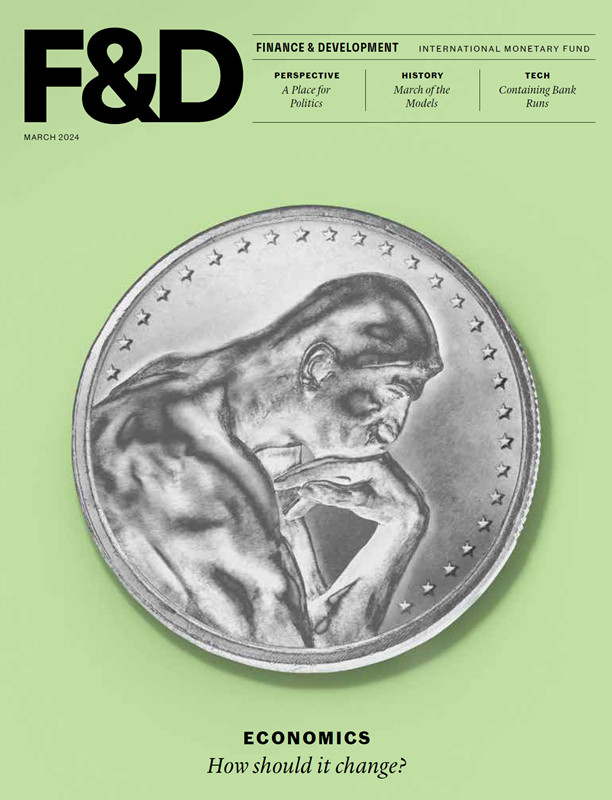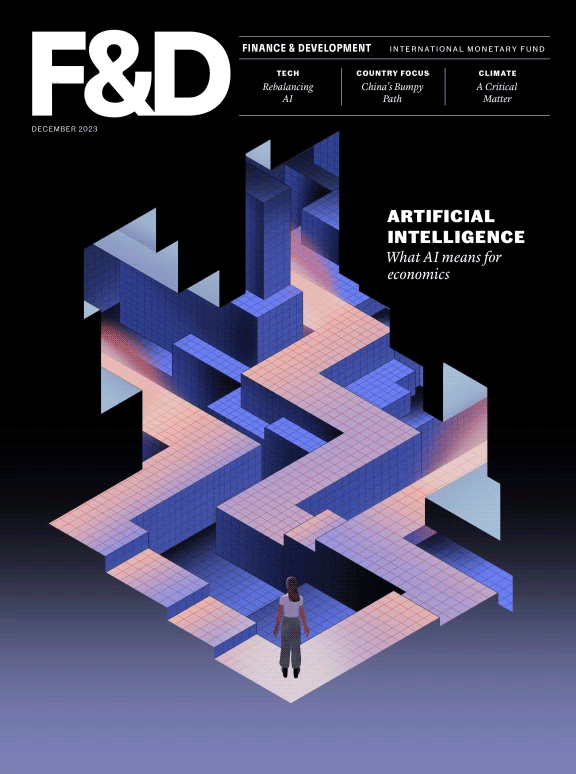Industrial policy could waste resources as capital becomes scarcer
Industrial policy—government actions to assist industries deemed strategically important—is again an important part of policymakers’ toolkits. The revival is largely the result of a race to navigate green and digital transitions in the United States, China, and the European Union and growing economic insecurity—a buzz phrase that covers a wide range of concerns, including supply-chain disruptions.
The US Inflation Reduction Act of 2021, which offers unprecedented tax credits and subsidies to foster investment, epitomizes the return of industrial policy in advanced economies. The revival is largely interpreted as a response to China’s proactive policies to support “strategic” sectors—such as clean energy technologies and chip manufacturing. The adoption of industrial policies by China and the United States prompted the European Union to launch its own program, the European Green Deal.
Industrial policy fell out of favor decades ago, especially in advanced economies. Policymakers were then justifiably wary of triggering subsidy races and trade wars. With the return of industrial policy, these concerns have reemerged. Policymakers must ensure that the economic insecurity that drives industrial policy does not degenerate into rounds of protectionist measures and a collapse of the open trade system. Multilateral institutions have an important role to play in preserving the open trade system.
Scarce capital
Moreover, a growing scarcity of capital complicates the revival of industrial policy. This capital scarcity is happening for two reasons. First, depressed global savings because of population aging—especially in advanced economies, but also in China, and to a lesser extent in other emerging markets. And second, increased capital demands to address the challenges of reducing dependence on fossil fuels and increasing digitalization. The transition to greener energy will likely create stranded assets (mostly fossil fuel reserves that lost their value) and capital obsolescence. For developing economies, there is a pressing need to enhance infrastructure—such as by increasing electricity access for their populations—and to invest in human capital.
As a result, there is a good chance that the real interest rate, known as r-star— the neutral interest rate that equilibrates the economy in the long run—will rise after several decades of staying at very low levels. Combined with high levels of public debt, the higher real rate will impose strong financial constraints on advanced economies.
In this new age of capital scarcity, one major risk of the revival of industrial policy is the wasting of resources. Investment mistakes can be more easily absorbed when capital is abundant. That was the case in China for the past three decades. But the misallocation of investment can prove quite damaging when capital becomes scarce.
For advanced economies, the effects of industrial policy on the efficiency of investment have not received enough attention. It is not certain that a strong departure from allocating capital through markets will enhance productivity, which has been declining in those economies. There is a significant risk of misallocation. Earlier efforts at industrial policy provide little evidence to be hopeful about their success in many countries, although economists are revisiting those performances using new data.
As industrial policy in advanced economies becomes mainstream, the capital coefficient—the ratio of the stock of capital to output—will rise, and productivity may decline. That would have adverse consequences for future generations in advanced economies and current populations in developing economies. Indeed, a waste of scarce capital will erode advanced economies’ net international investment position—that is, their financial position relative to the rest of the world—and hurt future generations, who will have to repay excessive debt.
Emerging casualties
Examples of casualties from the return of industrial policies are emerging. In China, manufacturers, including of electric vehicles, are facing bankruptcies amid overcapacity. In the United States, a large proportion of projects associated with the Inflation Reduction Act have been delayed. And in the European Union, industrial policy on batteries for electric vehicles is faltering because of the (unexpected) drop in demand for such vehicles.
Developing economies may be vulnerable as well. As capital becomes scarcer and more expensive globally, higher debt in advanced economies may constrain government spending and occasion reductions in development aid capital transfers to poorer countries. Already, several major traditional donors, including the United Kingdom, have reduced aid commitments.
All this will make financing the energy transition even more difficult, especially for developing economies. These countries will face hard choices—including whether to retire hydrocarbon resources and associated extractive structures to meet net zero targets or use these hydrocarbon resources to provide energy to their populations.
To avoid or reduce the risk of waste associated with industrial policy, a first step would be to state clearly and precisely the objectives being pursued. That would avoid cluttering industrial policy programs with multiple objectives. These objectives are becoming increasingly numerous, more geopolitical, and less directly linked to an economic logic of encouraging the growth of an important sector to correct a market failure—which would justify government intervention.
There are trade-offs—such as between speed and effectiveness of public action associated with industrial policy, which could have harmful consequences for present and future generations around the world. Whether the justification for the intervention of public authorities is linked to threats of new geopolitics or to externalities linked to climate and the environment, it is necessary to favor reasoned actions by keeping these trade-offs in mind. The era of scarcity in global capital calls for stricter and more transparent governance of industrial policy.
Opinions expressed in articles and other materials are those of the authors; they do not necessarily reflect IMF policy.










